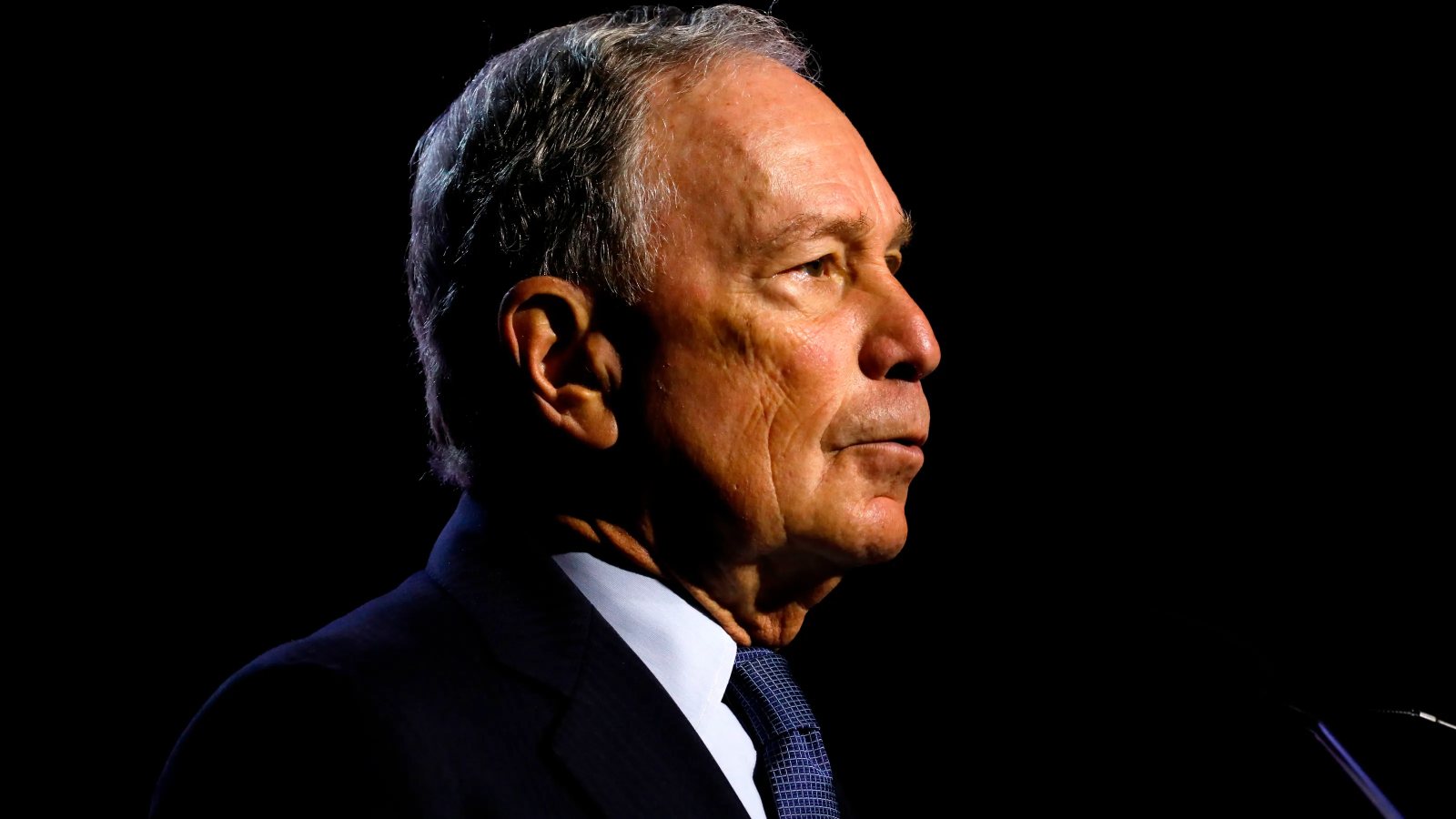At the rate late-comer billionaires were joining the Democratic primary, you’d think that voters were all-but screaming for them to enter the race. The reality, according to the polling data, however, seems to support the notion that most primary voters are satisfied with the current field and don’t see the need for yet another candidate name on an already long list.
In that line of analysis, enter former New York Mayor Michael Bloomberg. On Monday of this week, days before the Thanksgiving holiday with news that is sure to be almost entirely lost amid Black Friday sales on TVs and gadgets, Bloomberg dropped a web video and announced some campaign stops:
Michael Bloomberg officially announced his late-entry Democratic presidential bid on Sunday, unveiling a campaign that the former New York mayor said will be squarely aimed at defeating President Donald Trump.
Bloomberg, in a letter explaining his candidacy on his campaign website, lays out a more moderate vision for the country and casts himself as “a doer and a problem solver — not a talker.”
“I’m running for president to defeat Donald Trump and rebuild America. We cannot afford four more years of President Trump’s reckless and unethical actions,” Bloomberg wrote.
Bloomberg’s late 2020 bid — along with the money the billionaire can spend to fund his campaign — injects a new level of uncertainty into the race less than three months before the first voting in the race begins. In the last several days there was little doubt he was running.Bloomberg, who had said earlier this year that he would not run, reversed his decision because he doesn’t think there’s a candidate in the current field of Democrats who can beat Trump next November, several people close to the former mayor told CNN. That includes former Vice President Joe Biden, who Bloomberg has watched fade in Iowa polling and struggle with fundraising.
The one part of Bloomberg’s plan that seems destined for failure is his disregard for the actual Democratic voters tasked with selecting a nominee. If Bloomberg sees disaster ahead for his party and believes he’s the only one with the ability to save it, that’s fine, but he’ll need to convince voters in Iowa, New Hampshire, South Carolina, and about forty-seven other states of the same thing.
The New York Post speaks highly of Bloomberg, but says he missed his time to run several cycles ago:
But he was effective as an executive, and that is more than can be said for any of his rivals for the Democratic nomination. The truth — tragic for him, comic for his critics — is that his window of opportunity to become president is probably closed.
Bloomberg’s appeal is as a nonpartisan, solutions-oriented technocrat. That approach might have worked for him in 2008, when both eventual major-party nominees stressed their openness to working across the political aisle to solve the financial crisis. But it’s hard to see where that approach leaves Bloomberg today.
The Post argues that Bloomberg simply doesn’t fit anywhere with a winning lane in the Democratic primary. Issues like “stop and frisk,” a controversial law enforcement policy much-maligned among liberal activists is something that he can’t get away from despite attempts and apologies. Then there are things which anger a broad variety of voters outside of major urban areas like Bloomberg’s championing of the “soda tax” on sugary drinks.
As we also pointed out in a previous story, Bloomberg used to consider himself a Republican. Then he turned Independent, then turned fully to becoming registered Democrat. That move alone will make the base of the Democratic Party somewhat leery of him on a host of issues. His ideological compass cannot be counted in the way Elizabeth Warren or even Joe Biden can.
The other issue for Bloomberg is his propensity to flaunt the influence his money can have on the political process, according to the New York Times:
Speaking to reporters at a nearby Hilton soon after, Mr. Bloomberg noted he had spent “hundreds of millions of dollars fighting the N.R.A.,” including considerable “monies that we provided on gun safety” in Virginia’s recent elections, and had used his fortune to take on the coal and tobacco industries. He named two members of Congress from Virginia, Representatives Elaine Luria and Jennifer Wexton, whose campaigns he supported and spent heavily on in 2018.
…
That avalanche of money has led several Democratic presidential candidates to point to Mr. Bloomberg’s campaign as an emblem of a broken system. In Ankeny, Iowa, on Monday, Ms. Warren derided Mr. Bloomberg as a wealthy interloper seeking to “buy a nomination in the Democratic Party,” and she urged voters to show that his approach would fail.
If Mr. Bloomberg were to be successful, Ms. Warren warned, then in the future, elections would be “about which billionaire you can stomach.”
In the end, it could be that issue and that issue alone keeping candidates like Bloomberg and Steyer at a serious electoral disadvantage despite their clear monetary advantage. Voters don’t like to be “sold” to, setting Donald Trump aside in 2016. Democratic primary voters, especially after watching Trump and hating everything about him, don’t want to nominate a billionaire to fight a billionaire.
So yes, Mike Bloomberg has joined the race. He’s starting from behind, much like Deval Patrick, but he’s got money to try and catch up faster. As the Post says, Bloomberg’s time is past. The best he could likely be hoping for is a U.S. Senate seat from his home state since his broad appeal to the rest of the country is severely lacking.
Donate Now to Support Election Central
- Help defend independent journalism
- Directly support this website and our efforts
